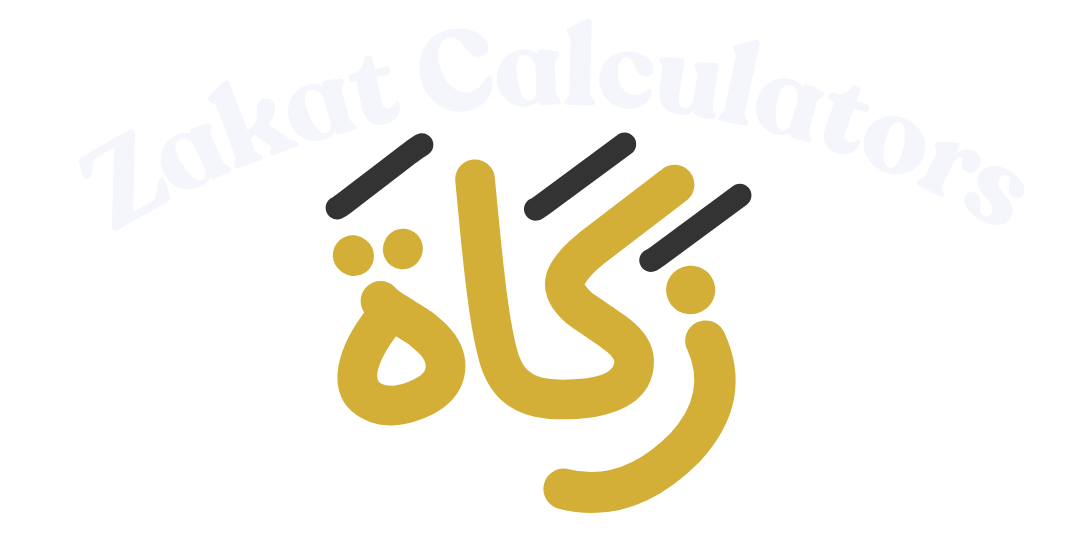Investment calculator calculate zakat for shares, stocks, crypto, and other assets. Instant results with Nisab comparison, 2.5% calculation, and share options.

Investments Zakat Calculator
Calculate Zakat on your investment portfolio including stocks, mutual funds, cryptocurrencies, and other investment vehicles
Investment Zakat Calculation
Publicly Traded Stocks
Exchange Traded Funds (ETFs)
Mutual Funds
Index Funds
Retirement Funds
Bitcoin (BTC)
Ethereum (ETH)
Other Cryptocurrencies
Bonds & Fixed Income
Real Estate Investments
Commodities & Precious Metals
Investment Zakat Results
Investment Breakdown
Investment Zakat Guidelines
Stocks & ETFs: Zakat is payable on the market value of shares held for investment.
Mutual Funds: Zakat is due on the current NAV if held for one lunar year.
Cryptocurrency: Treated as digital wealth, subject to Zakat at 2.5%.
Retirement Accounts: Zakat is due on accessible retirement funds.
Zakat is payable on investments held for one complete lunar year. Only Sharia-compliant investments are permissible for Muslims.
Investment Zakat Rules
- Zakat is payable on the market value of investments
- Holdings must be owned for one lunar year
- Only Sharia-compliant investments are permissible
- Investment debts can be deducted from the total
- Retirement accounts may be subject to Zakat
- Crypto assets are treated as wealth for Zakat
Save & Export
Zakat Impact
Your Investment Zakat of $0.00 could provide:
Importance of Zakat on Investments
Zakat on investments is wajib (obligatory) if your total holdings—such as stocks, shares, crypto, or other investment assets—reach the Nisab and have been held for one lunar year. Paying Zakat on investments ensures that your wealth is purified, aligns with Islamic teachings, and contributes to social welfare.
Qur’an Reference:
“And those who hoard gold and silver and do not spend it in the way of Allah – give them tidings of a painful punishment.”
— Surah At-Tawbah 9:34–35
Social Benefit:
“Your Zakat helps circulate wealth, support investors, and assist families in need, ensuring that economic resources benefit the wider community.”
Summary
This Investment Zakat Calculator helps you easily calculate Zakat on your investments including stocks, shares, crypto, and other assets. Simply enter your total investment value, select the currency and Nisab method, and get instant results showing whether Zakat is due and the amount payable. This tool ensures your wealth is purified, supports social welfare, and aligns with Islamic teachings.
Frequently Asked Questions
Zakat on investments is calculated at 2.5% of the total eligible investment value that has been held for one lunar year (hawl). Eligible investments include stocks, shares, mutual funds, cryptocurrencies, and other tradeable assets. To calculate, sum the market value of all your investments on the Zakat due date and compare it with the Nisab threshold. If your total exceeds Nisab, multiply it by 2.5% to determine your Zakat payable. This ensures compliance with Shariah principles and purifies wealth.
Yes, Zakat is obligatory (wajib) on investments that are eligible and exceed the Nisab threshold. Islamic teachings emphasize that wealth, whether in cash or productive assets, must be purified through Zakat (Qur’an 9:34–35). Investments like shares, bonds, or crypto that generate value are considered zakatable assets, while non-productive or personal assets may not be eligible. Paying Zakat on investments benefits society and ensures your wealth remains spiritually purified.
To calculate Zakat on stocks, follow these steps:
Determine the market value of your stocks at the Zakat due date.
Identify which stocks are zakatable (generally tradeable shares or stocks held for profit).
Add any cash dividends or profits from those stocks.
Compare the total with Nisab.
Multiply by 2.5% if the value exceeds Nisab.
Example: If your total eligible stocks are $50,000, Zakat = 50,000 × 0.025 = $1,250.
This method aligns with classical fiqh rulings and modern financial practices.
Yes, Zakat must be paid on investments that generate wealth or are held for trade/profit. Investments held for long-term growth or dividend generation are subject to Zakat once they reach Nisab and complete one lunar year. It is recommended to maintain records of purchase value, market value, and any cash returns to calculate accurately and remain compliant with Shariah.
Zakat on bonds depends on their type:
Shariah-compliant bonds (Sukuk): Treated like investments; Zakat is 2.5% of market value if above Nisab.
Conventional interest-bearing bonds: The principal may be zakatable if owned as wealth, but interest (riba) is not permissible, so consult a scholar for clarity.
Always calculate based on market value at Zakat due date and subtract any non-zakatable liabilities.
List all your stocks, ETFs, and investment securities.
Determine current market value of each asset.
Include any dividends or profits earned.
Compare total with Nisab.
Pay 2.5% of total value if above Nisab.
This method ensures accuracy and Shariah compliance and helps maintain financial accountability.
Yes, Zakat is applicable on investments that are productive and exceed the Nisab threshold. Islamic law emphasizes that wealth in circulation benefits the community. Eligible investments include stocks, mutual funds, crypto, business assets, and other profitable holdings. Non-zakatable assets, like personal belongings or illiquid assets, are excluded.
For long-term investments:
Determine market value of all investments at Zakat due date.
Confirm the asset has been held for one lunar year (hawl).
Compare with Nisab to see if Zakat is due.
Multiply by 2.5% for the payable amount.
Long-term assets like property or retirement funds may require special guidance from a qualified scholar, ensuring compliance with Islamic jurisprudence.
Yes, investments are included in Zakat if they are productive assets that generate wealth or held for trade purposes. This includes:
Stocks, shares, ETFs
Cryptocurrencies
Mutual funds
Bonds (Shariah-compliant)
Non-productive or personal assets are generally excluded. Paying Zakat ensures your wealth is purified and socially beneficial.
Eligible assets for Zakat include:
Cash and savings
Gold and silver
Business assets and inventory
Investments (stocks, bonds, crypto, mutual funds)
Receivables due to you
Assets not eligible typically include personal belongings, primary residence, and non-profitable assets. Following these rules ensures Shariah compliance and fulfills your religious obligation responsibly.
